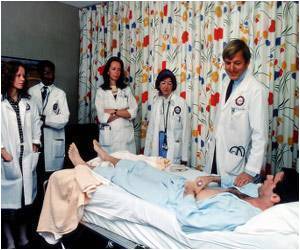Adolescents and young adults preferred more patient-led active decision-making while parents preferred more parent/physician-shared decision-making.

‘New study findings suggest interventions to better meet the decision-making needs of adolescents and young adults with advanced heart disease are warranted.’





In such a scenario, it is critical that a better understanding of the communication and medical decision-making preferences of the young people we care for is given. How we communicate about diagnosis, prognosis, treatment options, and more impacts coping, medical adherence, and health outcomes (1✔ ✔Trusted SourceCancer-Related Decision-Making Among Adolescents, Young Adults, Caregivers, and Oncology Providers
Go to source).
Hence, researchers wanted to characterize the decision-making preferences of young adults with advanced heart disease and their parents and determine factors associated with these preferences.
They surveyed 53 young adults ages 12-24 with advanced heart diseases, including heart failure – a lifelong condition in which the heart muscle cannot pump enough blood to meet the body’s needs – along with 51 of their parents.
Dimensions of Treatment Decision Making in Adolescents and Young Adults with Heart Disease
In this sample of patients with serious heart disease, they found that many teens and young adults want to be aware of their treatment options, risks, and prognosis information and desire active involvement in their medical decision-making.Nearly 45 % of patients desired active, patient-led decision-making specific to their heart disease management with a considerable majority wanting to discuss adverse effects or risks of treatment, surgical details, quality of life, and life expectancy.
Meanwhile, parents and guardians preferred an approach involving shared decision-making between them and their child’s doctors. The largest proportion of parents felt they should make medical decisions for their teen or young adult in partnership with the medical team.
Advertisement
There is no one-size-fits-all approach to medical communication and decision-making. Each child, teen, young adult, and family system has different needs and preferences. It is on us to better understand youth needs and preferences to best incorporate their voice into medical care decisions in a way that is aligned with their needs (2✔ ✔Trusted Source
Exploration of Decisional Control Preferences in Adolescents and Young Adults with Cancer and Other Complex Medical Conditions
Go to source).
Advertisement
The study should get the attention of all clinicians who care for children with significant heart disease. Both parents and providers may be underestimating how actively involved adolescents and young adults want to be when it comes to decisions about their heart disease.
These findings underscore the importance of understanding everyone’s preferences and personalizing communication methods with each young patient regardless of their diagnosis, disease severity, or symptoms (3✔ ✔Trusted Source
Medical and End-of-Life Decision-Making Preferences in Adolescents and Young Adults with Advanced Heart Disease and Their Parents
Go to source).
Researchers need to continue to pursue individualized conversation tools and decision-making interventions with young patients with advanced heart disease.
References:
- Cancer-Related Decision-Making Among Adolescents, Young Adults, Caregivers, and Oncology Providers - (https://www.ncbi.nlm.nih.gov/pmc/articles/PMC9198895/)
- Exploration of Decisional Control Preferences in Adolescents and Young Adults with Cancer and Other Complex Medical Conditions - (https://www.researchgate.net/publication/339468204_Exploration_of_Decisional_Control_Preferences_in_Adolescents_and_Young_Adults_with_Cancer_and_Other_Complex_Medical_Conditions)
- Medical and End-of-Life Decision-Making Preferences in Adolescents and Young Adults with Advanced Heart Disease and Their Parents - (https://jamanetwork.com/journals/jamanetworkopen/fullarticle/2804557)
Source-Eurekalert













